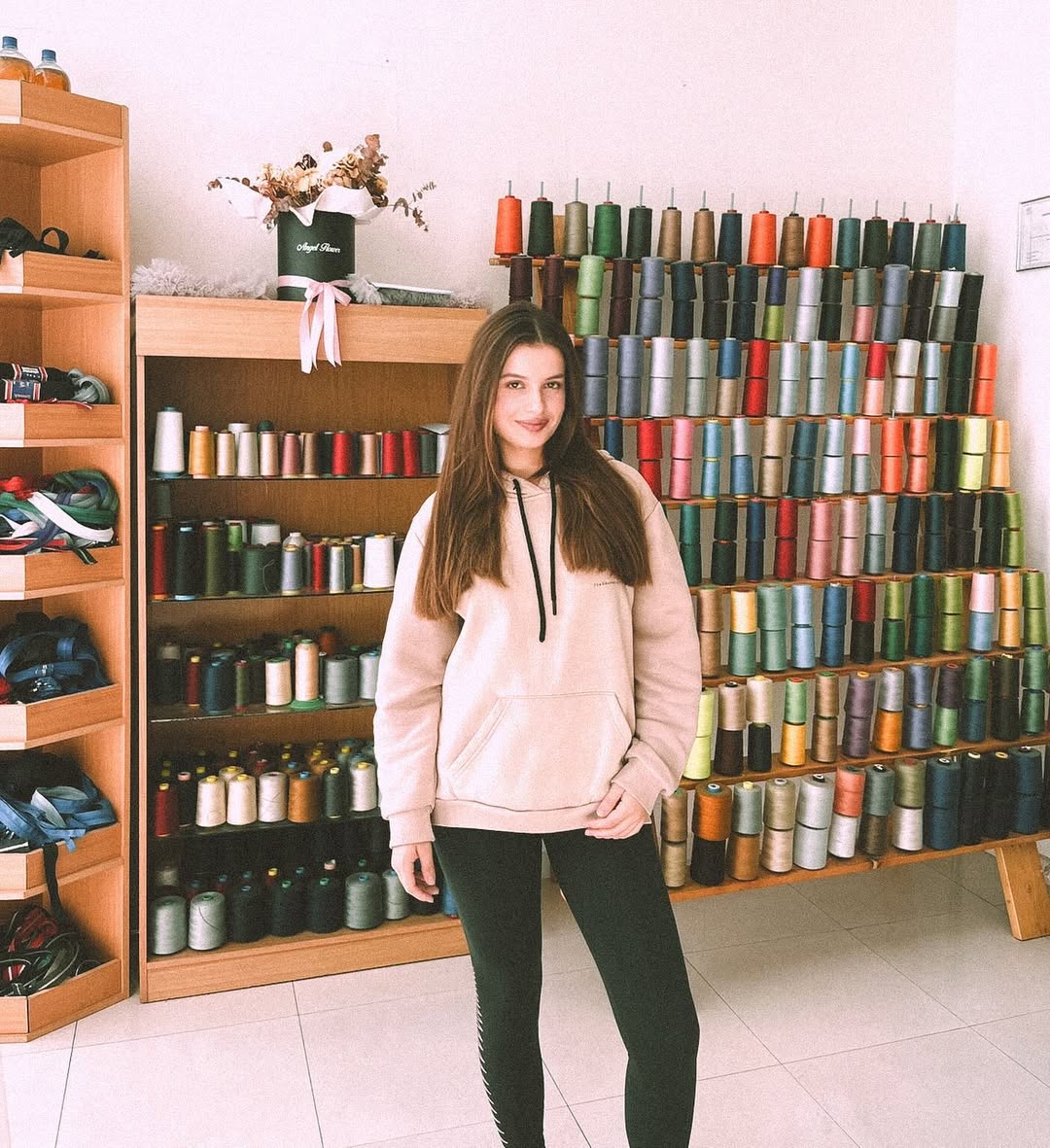In a rapidly changing world, it is often young people who lead the way in innovation, courage, and vision for a better future. Many young Albanians are challenging boundaries and striving to make their mark globally through their achievements. One such inspiring example is Blerta Dodaj, a 21-year-old Albanian student who is part of the Harvard and MIT communities. Last week, she presented her idea for an AI-powered water-cleaning robot at the Harvard Innovation Labs.
Her project, CleanWatts AI, envisions the creation of an autonomous water robot equipped with artificial intelligence, multispectral sensors, and robotic arms, designed to reduce water pollution.
Tell us a bit about yourself – Who is Blerta Dodaj and how did you end up at Harvard?
I’m 21 years old and currently studying business at an academic institution in California. I’m passionate about knowledge and books—I read a lot. Back in high school, alongside the clubs I started and led, I also founded my own casting group called Alex’s Casting, which operated outside school and directly in the labor market. Initially, the members were my friends, but later the group grew. We worked on TV projects—commercials, films—where my peers participated as lead roles or extras.
Besides academics, I have a great love for the arts and I sing well. (Fun fact: in 2022, I was scouted by America’s Got Talent, but that’s as far as it went. Laughs)
In the summer of 2023, after submitting my application and required documents, I was accepted into Harvard DCE and obtained official student status there—along with my Harvard email and ID. I’ve been very engaged with the Harvard and MIT communities and have participated in many of their organizations and events, which gave me the opportunity to work with students from schools like Yale, Vassar, and the University of Pennsylvania.
From November to May, I was the only Albanian selected for the mentorship program by Harvard W3D and Harvard AIH. Later, I was chosen as one of 42 student leaders to work as a design lead for the WIC conference held in April at the Harvard Kennedy School. There, I met one of my dearest friends who has greatly supported me.
I am also a member of MIT Women’s League and was selected for MIT’s English Partner Program for Spring 2025, where one MIT student is paired with a member of the MIT Women’s League to practice English together. Additionally, I write for Les Adore magazine—a publication created by students from Yale, Harvard, and Vassar, founded by a Harvard student.
How did your passion for technology and environmental solutions begin? Tell us more about the robot you recently presented at Harvard Innovation Labs. What makes it unique?
In January of this year, I was selected among 500 students from Harvard, MIT, Stanford, and others to participate in the Climate Venture Class at the Harvard Innovation Labs. Over two months, I learned more about innovative climate solutions. Each session was led by a Harvard ILab expert, and we often had prominent guest speakers—like former CTOs of Meta—discussing business and climate topics.
At the end of the course, selected students had the opportunity to pitch their climate-related business ideas to I-Lab experts and a strategic investor. I was one of them and presented CleanWatts AI at the Community Pitch Event last Friday.
CleanWatts AI is an autonomous aquatic robot designed as a modular drone equipped with integrated AI and advanced multispectral sensors. The platform is based on a floating modular structure that can be adjusted based on pollution levels and terrain types.
The system includes electromagnetic motors powered by optimized navigation algorithms, real-time data analysis units, and robotic arms with controlled-pressure actuators to identify and collect solid waste.
The AI module uses machine learning algorithms to analyze waste composition, predict pollution spread, and optimize cleaning paths. The energy system is powered by flexible solar panels and lithium-ion batteries, managed by a customized Battery Management System (BMS), ensuring extended autonomy in diverse environmental conditions. Additionally, the robot can be manually remote-controlled by trained users through a physical controller or an interactive virtual platform.
What is the long-term goal of this project and what global impact do you hope to achieve?
The idea is to develop an intuitive remote-control program that will allow operators to participate in the cleaning process in real-time from anywhere in the world. That’s the vision behind my project.
Has your Albanian identity influenced your professional journey and decision-making abroad? What advice would you give to other Albanian youth with ideas but hesitation to go international?
I’ve always seen my Albanian roots as an asset in every school or internship I’ve attended abroad. So far, I’ve never felt discriminated against because of it. I’ve had the chance to study and work in very inclusive and diverse environments, where your background matters far less than the values and contributions you bring.
I feel incredibly grateful to God for surrounding me with opportunities that help me grow academically, professionally, personally, and spiritually. Although I used to feel discouraged sometimes when I was younger and thought, “I wish I had been born in a different country besides Albania”, now I’m fully convinced that if I hadn’t been born and raised in Albania—and hadn’t gone through the struggles I did—I wouldn’t be experiencing all these amazing things now.
So we should be grateful, not blameful, for the circumstances we’re placed in. I want to encourage my peers to invest in their education and to truly, deeply love learning.

0 comments